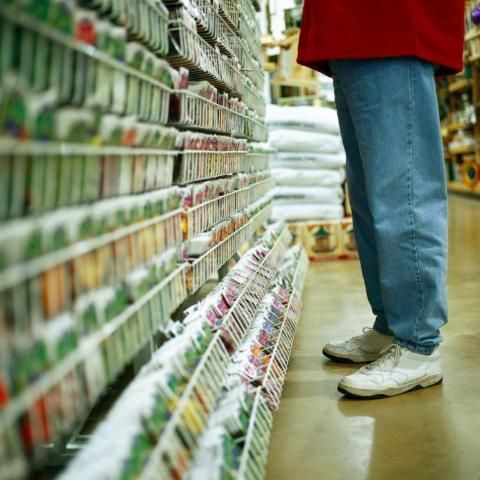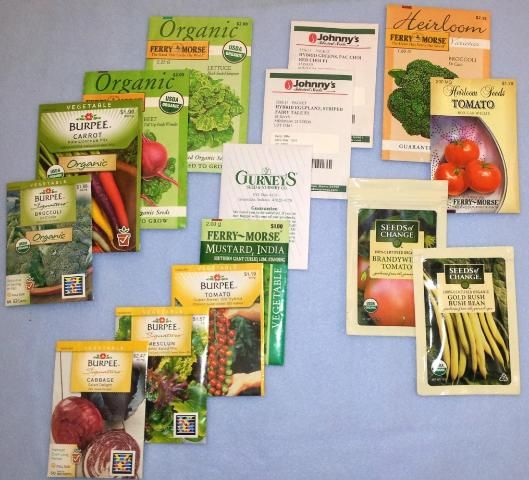|
Beans
Snap
Bush Blue Lake
Contender
Roma II
Provider
Cherokee Wax
|
1-2-3-7-8-11-13-14-15-16-19-23
4-7-11-13-15-23 4-6-7-11-12-13-14-16-18-20
4-10-11-15-16-19-20
6
|
Cantaloupes and Honeydews
Athena
Ambrosia
Galia (green flesh)
|
2-4-7-11-12-13-20
11-13-14-22-23
12
|
|
Bush Type:
Shell
Horticultural
Pinto
Red Kidney
Black Bean
Navy
|
4
13
10
10
5
|
Carrots
Imperator
Nantes
Danvers
Chantenay
|
4-6-13-15-16-23
2-3-6-7-11-14-18-19
1-3-6-7-13-14-15-16
1-3-12-13-16-18-19
|
|
Pole Type:
McCaslan
Kentucky Wonder
Blue Lake
|
4-15-16 2-3-4-6-7-11-13-14-15-16-18-23 3-6-7-11-12-13- 14-15-16-19
|
Cauliflower
Snowball
Snow Crown
Brocoverde
|
1-2-3-6-13-18
7-10-11-14-16-22-23
3-12
|
|
Lima:
Fordhook 242
Henderson
Jackson
Wonder
Dixie (Speckled) Butterpea
Early Thorogreen
|
2-6-7-10-14-16-23
1-4-15-16-23
1-16-20
4
1-14-15-16-23
5-16-23
|
Celery
Utah Strains
|
3-6-13-15-20
|
|
Beets
Tall Top
Early Wonder
Detroit Dark Red
Cylindra
Red Ace
Yellow Detroit
|
6-19
1-3-6-10-13-15-16-20
1-2-3-4-6-7-13-14-15-18-23
1-2-3-10-11-12-13-15-23
10-11-13-14-16-20-23
6-18
|
Collards
Georgia
Georgia Southern
Top Bunch
Vates
|
3-6-14
6-13
4
4-13-16
|
|
Cabbage
Rio Verde
Flat Dutch
Round Dutch
Wakefield types
Copenhagen Market
Savoy
Red Acre
|
4
1-2-4-12-13-16
4-6
1-3
24
4-9-11-23
16-19
|
Corn, sweet
Silver Queen (white)
How Sweet It Is (white)
Sweet Ice (white)
Sweet Riser (yellow)
Early Sunglow (yellow)
|
2-3-4-6-7-14-16
14-16
8
24
3-6-14
|
|
Cucumbers
Slicers:
Sweet Success
Poinsett
Ashley
MarketMore 76
Straight Eight
Space Master
Picklers:
Eureka
Boston Pickling
|
3-7-9-14-16-23
4-6
4-11-12-13-23
1-3-4-6-10-11-13-14-16-19-23
1-2-3-4-6-7-9-11-13-14-16-18
3-6-9-16
7-9-22
1-4-6-13-16
|
Kale
Vates Dwarf Blue Curled
Tuscan (Lacinato)
Winterbor
Redbor
|
1-4-6-13-16
3-10-12-14
4-10-12-14-20
14-18-20
|
|
Eggplant
Black Beauty
Dusky
Long
Ichiban
Cloud Nine (white)
|
1-2-3-4-6-9-13-14-16-18
15
6-13
18
15
|
Kohlrabi
Early White Vienna
Purple Vienna
|
1-3-6-7-16
1-3-4-13-16-23
|
|
Endive
Green Curled Ruffec
|
6-11
|
Lettuce
Crisphead:
Great Lakes
Butterhead:
Ermosa
Bibb
Tom Thumb
Buttercrunch
Loose Leaf:
Simpson types
Salad Bowl
Red Sails
New Red Fire
Oak Leaf:
Salad Bowl
Royal Oak
Romaine:
Paris Island Cos
Outredgeous
|
6-13
10
3-6
1-3-6-19-20
2-3-6-7-10-11-13-14-16-18-20-23
3-4-6-9-16-20-23
3-10-12-14
3-6-7-10-13-20-23
17-18
3-6-10-16
3-16-18
3-10-11-13-18
10-12-19-1
|
|
Escarole
Batavian Broadleaf
|
5
|
Mustard
Southern Giant Curled
Florida Broad Leaf
Tendergreen
Giant Red
Green Wave
Mizuna
|
3-4-6-11-14-16-18
3-4-6
3-4-16-18
3-10-14-18
8-17-18
3-18
|
|
Okra
Clemson Spineless
Emerald
Annie Oakley II
Cajun Delight
|
1-3-4-6-7-9-10-13-14-16-18
1-6
7-9-14
11-23
|
Peppers
Bell:
California Wonder
Red Knight
Big Bertha
Other Sweet:
Sweet Banana
Giant Marconi
Mariachi
Cubanelle
Jalapeno:
Early Jalapeno
Jalapeno M
Specialty Hot:
Cherry Bomb
Hungarian Hot Wax
Big Chili II
Numex
Ancho
Thai
Anaheim Chile
Long Cayenne
Habanero
Caribbean Red Habanero
|
1-2-3-6-13-14-16-18-19-20
9
9-14-16
2-4-7-9-16
3-9
3-13-14
3-4-6-7-12
6-9-10-14-16-20
3-4-6-14
3-9-16
1-12-13-14-16-19
9-16
9-19
9-10-12-13-14
1-3-14
2-3-4-9-13
3-6-9-13
1-3-4-6-9-10-13-20
12
|
|
Onions
Bulbing:
Granex (yellow)
Bunching (green)
Evergreen Bunching
White Lisbon Bunching
Leeks:
American Flag
Multiplier:
Shallots
|
3-4-6-9-12-14
3-6-7-10-11-16
3-6
5-6
2-3-9-12-14-19-23
|
Potatoes, Irish
Red Pontiac
Yukon Gold
Gold Rush
|
2-14-16
2-3-14-16
5
|
|
Peas
English or Snow:
Wando
Green Arrow
Sugar Snap
Oregon Sugarpod II
|
1-2-3-6-16
13-14-19-20
1-2-3-7-10-13-14-16-18-19-20
1-2-3-4-6-7-18-19-20
|
Potatoes, Sweet
Centennial
Beauregard
Vardaman
|
3-13-14
3-6-8-14
3-14-21
|
|
Peas
Southern:
California Blackeye No. 5
Pinkeye Purple Hull
Texas Cream
|
2-4-6-16
6-16
15-22
|
Pumpkin
Big Max
Connecticut Field
Prizewinner
Jack Be Little
Jack O Lantern
|
1-6-7-13-16
1-7-13-16
3-9-15
4-6-9-13-20
3-6-16
|
|
Radish
Cherry Belle
White Icicle
Sparkler
Champion
Daikon
|
3-6-7-13-16-20-23
3-6-11-12-16
6-11-14
4-6-7-11-13-16-23
3-4-6-11-16-23
|
Strawberry
Chandler
Oso Grande
Sweet Charlie
Selva
Camarosa
Festival
|
Local garden centers may offer these varieties (as plants) in early Fall.
|
|
Spinach
Melody 3
Bloomsdale Longstanding
Tyee
Space
|
3
1-3-4-6-7-11-13-16-20-23
6-7-11-14-16-20-23
11-14-20-23
|
Swiss Chard
Bright Lights
Bright Yellow
Fordhook Giant
Lucullus
Red Ruby
|
3-6-7-11-12-13-14-15-16-20-22-23
15
1-3-13-15-16-18-19-20-23
7-13
6-13-18
|
|
Squash
Summer:
Early Prolific Straightneck
Summer Crookneck
Early White Scallop
Winter:
Spaghetti
Table King
Table Queen & Table Ace
Waltham
Early Butternut
Zucchini:
Cocozelle
Spineless Beauty
Black Beauty
Calabaza
|
1-2-3-4-6-7-12-16-18
3-4-6-12-13-14
1-6-11-13-16
1-2-3-711-12-13-16-18-20
6-11
1-2-3-13
3-4-11-13-16-18-20-23
1-3-6-11-12-13-14-23
1-6
4-6-11-13-14-23
1-2-4-6-11-13-14-16-18-20
Latin Markets – seeds from whole fruit
|
Tomatoes
Large Fruit:
Celebrity
Heat Wave II
Better Boy
Beefmaster
BHN444 – Southern Star
Amelia
BHN640
Small Fruit:
Sweet 100
Juliet
Red Grape
Sun Gold
Sugar Snack
Sweet Baby Girl
Heirloom:
Green Zebra
Cherokee Purple
Eva Purple Ball
Mortgage Lifter
Delicious
Brandywine
|
2-7-13-14-16-21
3
2-3-6-7-9-11-14-21-22
6-9-13-14
15-20
22
21-6-9-14-21
3-6-13-14-21-22
1
9-21-22
3-15
3-7-9-14
1-3-12-13-20-21
1-3-12-13-20-21
1-3-14-16-18-20-21-22
8-15
7-14-16
3-7-16-21
1-3-4-6-7-9-11-12-13-14-16-18-20-21-23
|
|
Turnips
Roots:
Purple Top White Globe
Greens:
Seven Top
Shogoin
|
1-3-4-6-7-11-13-16-23
13-16
16
|
Watermelon
Large:
Jubilee
Crimson Sweet
Charleston Grey 133
Small:
Sugar Baby
Mickeylee
|
4-16
1-3-4-6-7-9-11-13-16-18-19-23
1-2-3-4-9
1-2-3-6-7-9-12-16-19-20
4
|

